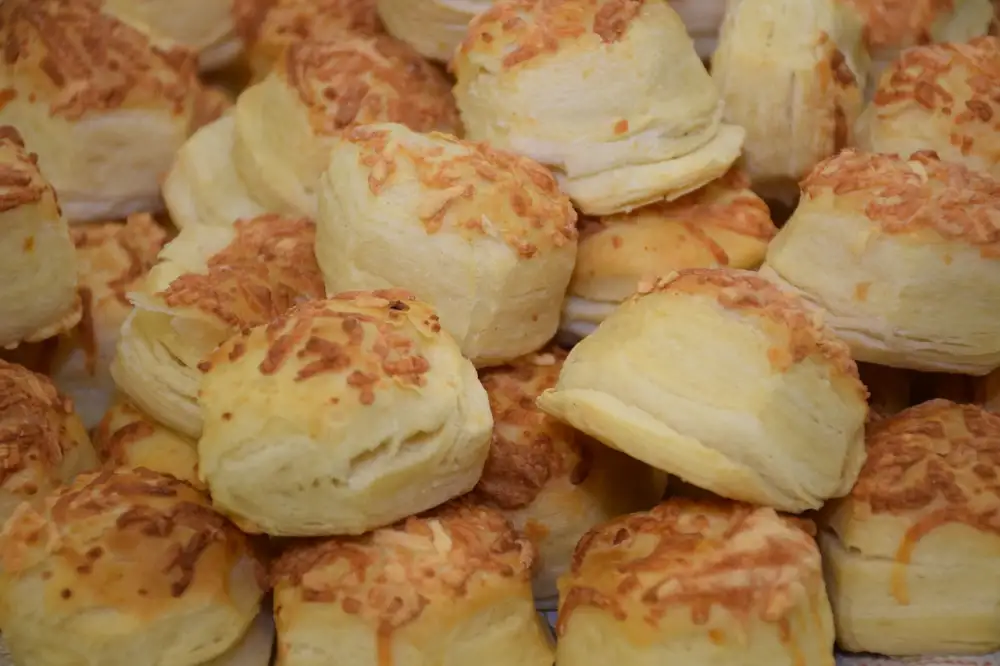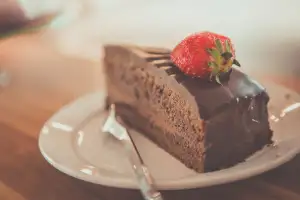Indulge in the Perfect British-Style Scone Recipe: A Taste of UK Delight

British-style scones are a delightful treat that have been enjoyed for centuries in the United Kingdom. These small, round baked goods are known for their light and fluffy texture, making them the perfect accompaniment to a cup of tea or coffee. Whether enjoyed plain or with a dollop of clotted cream and jam, scones are a quintessential part of British afternoon tea. In this article, we will explore the secrets behind creating the perfect British-style scone recipe, so you can indulge in this classic UK delight at home.
Ingredients required for making scones
To create the perfect British-style scones, you will need the following ingredients:
- 2 cups all-purpose flour
- 1/4 cup granulated sugar
- 1 tablespoon baking powder
- 1/2 teaspoon salt
- 1/2 cup unsalted butter, cold and cubed
- 2/3 cup milk
- 1 teaspoon vanilla extract
- Optional: 1/2 cup raisins or currants
These simple ingredients come together to form the base of a delicious scone. The butter provides richness and flakiness, while the milk adds moisture. The addition of raisins or currants is traditional but can be omitted if desired. With these ingredients in hand, you are ready to embark on your scone-making journey.
Step-by-step instructions for preparing scones
1. Preheat the oven to 220°C (425°F) and line a baking sheet with parchment paper.
2. In a large mixing bowl, combine 2 cups of all-purpose flour, 1/4 cup of granulated sugar, 1 tablespoon of baking powder, and a pinch of salt.
3. Add 1/2 cup of cold unsalted butter, cut into small cubes. Use your fingertips to rub the butter into the dry ingredients until the mixture resembles coarse crumbs.
4. Make a well in the center and pour in 3/4 cup of cold milk. Stir gently with a fork until just combined. Be careful not to overmix; it's okay if there are still some lumps.
5. Turn the dough out onto a lightly floured surface and gently knead it a few times to bring it together. Pat it into a circle about 1 inch thick.
6. Use a round cookie cutter or glass to cut out scones from the dough. Place them on the prepared baking sheet, leaving some space between each one.
7. Optional: Brush the tops of the scones with beaten egg or milk for a shiny finish.
8. Bake for 12-15 minutes or until golden brown and cooked through. Remove from the oven and let cool on a wire rack before serving.
Enjoy these warm, fluffy scones fresh from the oven with clotted cream and jam for an authentic British treat!
Tips and tricks for achieving the perfect scone texture
To achieve the perfect scone texture, it's important to keep a few tips and tricks in mind. Firstly, make sure all your ingredients are cold, especially the butter. Cold butter will create pockets of steam when baked, resulting in a light and flaky texture. Secondly, handle the dough as little as possible. Overworking the dough can lead to tough scones. Use a light touch when mixing and kneading. Lastly, don't forget to brush the tops of your scones with an egg wash before baking. This will give them a beautiful golden color and a slightly crispy exterior. With these tips in mind, you'll be well on your way to achieving scone perfection!
Variations and additions to enhance the flavor of scones
Variations and additions can take your scones to the next level, adding a burst of flavor and excitement. Here are some ideas to enhance the classic scone recipe:
1. Fruit-filled: Add dried or fresh fruits like blueberries, cranberries, or raisins to the dough for a sweet surprise in every bite.
2. Nutty goodness: Incorporate chopped nuts such as almonds, walnuts, or pecans into the dough for a delightful crunch.
3. Zesty zest: Grate the zest of citrus fruits like lemon or orange and mix it into the dough for a refreshing twist.
4. Chocolate indulgence: Sprinkle chocolate chips or chunks into the dough for a decadent treat that will satisfy any sweet tooth.
5. Savory delights: Experiment with savory ingredients like grated cheese, herbs (such as rosemary or thyme), or even cooked bacon bits to create savory scones perfect for brunch or tea time.
Remember to adjust the sweetness and flavors accordingly when adding these variations to maintain a balanced taste. Get creative and let your taste buds guide you towards unique combinations that suit your preferences!
Serving suggestions and accompaniments for scones
When it comes to serving scones, there are a few classic accompaniments that perfectly complement their buttery goodness. The most traditional choice is clotted cream, a thick and indulgent cream with a slightly sweet flavor. Spread a generous dollop of clotted cream on your warm scone before adding a spoonful of your favorite jam on top.
If you're looking for something lighter, whipped cream is another popular option. Its airy texture adds a delightful contrast to the dense scone. You can also experiment with flavored creams such as vanilla or lavender to add an extra layer of complexity to your scone experience.
For those who prefer savory over sweet, try serving your scones with butter and cheese. The creamy butter melts into the warm scone, while the sharpness of the cheese provides a delicious tangy kick.
To complete the perfect tea-time treat, serve your scones alongside a pot of freshly brewed tea. Whether you prefer black tea or herbal infusions, the combination of warm scones and aromatic tea is simply unbeatable.
Remember, presentation is key! Arrange your scones on a tiered cake stand or a pretty plate for an elegant touch. Add some fresh berries or edible flowers for a pop of color and visual appeal.
Whether you're hosting an afternoon tea party or simply treating yourself to a cozy snack, these serving suggestions will elevate your scone experience to new heights. So go ahead and indulge in this quintessentially British delight!
Frequently asked questions about making scones
1. Can I use self-rising flour instead of all-purpose flour?
Yes, you can use self-rising flour, but remember to adjust the amount of baking powder accordingly.
2. Can I substitute butter with margarine?
While margarine can be used as a substitute for butter, it may affect the texture and flavor of the scones. Butter is recommended for the best results.
3. Why do my scones turn out dry?
Overmixing the dough or overbaking the scones can result in a dry texture. Be sure to handle the dough gently and bake them until they are just golden brown.
4. Can I freeze scone dough?
Yes, you can freeze scone dough before baking. Simply shape the dough into rounds or triangles, wrap them tightly in plastic wrap, and store in an airtight container in the freezer for up to 3 months.
5. How do I achieve a flaky texture?
To achieve a flaky texture, make sure your butter is cold and cut into small cubes. Incorporate it into the flour mixture using your fingertips or a pastry cutter until it resembles coarse crumbs.
6. Can I add fruits or chocolate chips to my scones?
Absolutely! Adding fruits like blueberries or raisins, or even chocolate chips, can enhance the flavor of your scones. Just fold them into the dough gently before shaping.
Remember that practice makes perfect when it comes to making scones. Don't be discouraged if your first attempt isn't perfect - keep experimenting and enjoy the process!
In conclusion, mastering the art of scone-making is a delightful journey that allows you to indulge in the perfect British-style treat. By following the step-by-step instructions and incorporating the tips and tricks mentioned, you can achieve scones with a light, flaky texture and a rich, buttery flavor. Don't be afraid to experiment with variations and additions to elevate the taste of your scones. Whether you prefer classic plain scones or enjoy adding fruits, nuts, or even cheese, there are endless possibilities to explore. Remember to serve your freshly baked scones with clotted cream, jam, and a pot of hot tea for an authentic British experience. So gather your ingredients, put on your apron, and embark on this wonderful culinary adventure. Happy baking!
Published: 18. 11. 2023
Category: Food



